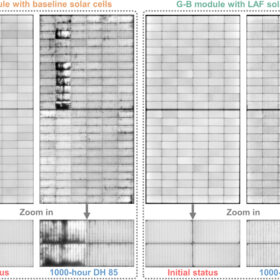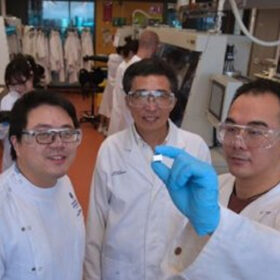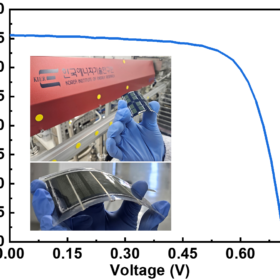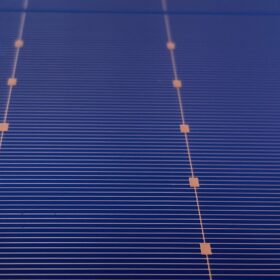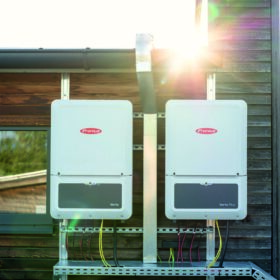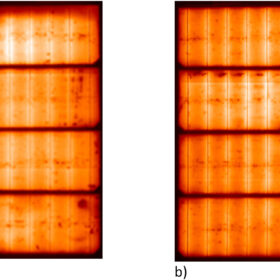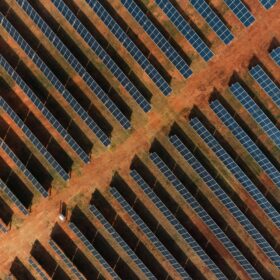EVA-induced degradation has significant impact on power losses in TOPCon solar modules
New research from UNSW shows that EVA-encapsulated TOPCon solar modules under damp-heat testing can suffer significant power losses and fill factor drops. The study describes metallization degradation mechanisms driven by EVA-generated contaminants and demonstrates the effectiveness of metallization adjustments in reducing EVA-induced degradation rates
Australian researchers build 2D/3D tin halide perovskite solar cell with 16.65% efficiency
Researchers at the University of Queensland have developed a 2D/3D tin halide perovskite (THP) solar cell with a certified efficiency of 16.65% and peak performance of 17.13%, maintaining stable output under continuous illumination for over 1,500 hours.
Longi achieves 34.85% efficiency for two-terminal tandem perovskite solar cell
The result was confirmed by the U.S. Department of Energy’s National Renewable Energy Laboratory (NREL).
CIGS cell with ultra-thin glass substrate hits record efficiency of 17.81%
South Korean researchers have fabricated a copper indium gallium selenide (CIGS) solar cell with a 90 μm-thick UTG provided by South Korea’s Unique Technology Integral. The device uses a cadmium-free buffer layer made of zinc oxide and magnesium oxide, instead of cadmium sulfide.
Average silver price up 21% in 2024, says Silver Institute
Demand for silver in the PV industry hit 197.6 million ounces in 2024, according to a new report from the Silver Institute. It says the average silver price stood at $28.27 per troy ounce last year, up from $23.35 in 2023.
Dutch utilities to test lower tariffs during solar production peaks
Dutch utilities Eneco and Delta Energie will test lower electricity tariffs for consumers – regardless of PV system ownership – who shift consumption to periods of peak solar generation. The pilot aims to encourage flexible demand during midday hours.
Fraunhofer ISE developing heterojunction solar cells with silver consumption of less than 2 mg per W
Researchers at the German institute are seeking to reduce silver use in heterojunction PV devices under the umbrella of an extensive research projects. Among their recent achievements there is the fabrication of a heterojunction cell that requires a minimal silver consumption of only 1.4 mg per W.
Fronius launches hybrid inverters for residential, commercial applications
The Austrian manufacturer said its new hybrid inverters can increase the usable output of the PV system to up to 150%. They are available in six version with rated AC power ranging from 15 kW to 33.3 kW.
CEA-INES unveils PV module interconnection tech that reduces silver use by 26%
The French research institute found that switching from silver cell metallization to silver-copper metallization can lower the total silver quantity in a heterojunction module, with a total silver amount of only 14 mgAg/W being required. Their interconnection technique is based on low silver content electrically conductive adhesives and copper ribbons.
Global solar module shipments hit 703 GW in 2024
The new edition of the International Technology Roadmap for Photovoltaic (ITRPV), published this week, reports that average PV module prices last year dropped by 33% compared to the end of 2023.

